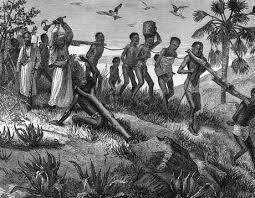Ghana has a rich and complex history dating back thousands of years. From the early kingdoms of the Ashanti and the Fante to the colonization by the Portuguese, Dutch, and British, Ghana has been shaped by a series of important events and cultural influences.
One of the earliest kingdoms in Ghana was the Ashanti Empire, which emerged in the 17th century. The Ashanti were known for their military prowess and their wealth, which was based on the gold trade. The Ashanti were also skilled traders and formed alliances with neighboring tribes and kingdoms.
In the late 19th century, Ghana became a center of the West African slave trade. Europeans first arrived in Ghana in the late 15th century with the Portuguese, followed by the Dutch in the 16th century, and the British in the 17th century. The slave trade was one of the most brutal periods in Ghana's history, and it is estimated that millions of Africans were captured and sold into slavery during this time.
In 1821, the British took control of the entire country, which they called the Gold Coast. They established administrative centers and developed the country's economy, but also imposed a series of often brutal laws and practices that oppressed the local population.
In 1957, Ghana became the first African country to gain independence from colonial rule. Kwame Nkrumah, who became Ghana's first president, played a key role in the country's independence movement. Under his leadership, Ghana made great strides in modernization and economic growth, but his government was also known for its authoritarian tendencies.
In the decades since independence, Ghana has faced a number of challenges, including political instability, economic setbacks, and social inequality. But the country has also shown resilience and has made impressive strides in areas such as education, healthcare, and infrastructure development.
Today, Ghana is a modern and vibrant country with a diverse population, rich cultural heritage, and a growing economy. It remains one of Africa's most important nations and a key player in the region's political and economic landscape.




No comments yet
Be the first to share your thoughts!